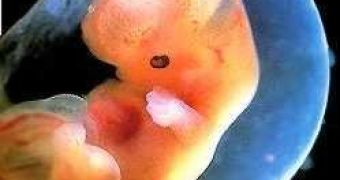Stem cells promise everything: from new hearts to new testes or eyes.
Now, researchers have announced major advances in stem cell research: directly reprogramming fetal mouse cells to be indistinguishable from embryonic stem (ES) cells. This way scientists could get cell lines tailored to individual patients without any need for eggs or embryos.
By inserting various combinations of genes related to pluripotency active in mouse ES cells, the scientists found a combination of four genes that, when introduced into cells from mice's Tails, induced ES-like properties in the cells. The three teams, led by Shinya Yamanaka of Kyoto University in Japan, the Massachusetts Institute of Technology's Rudolf Jaenisch and Harvard's Konrad Hochedlinger, employed a viral vector to insert genes for four transcription factors active in ES cells: Oct4, Sox2, c-Myc, and Klf4.
The reprogramming is effective for only one in every 1000 cells so that the scientists had to weed out the nonstarters using a gene that selected the incompletely reprogrammed cells.
In the new approaches the researchers used Oct4 and Nanog that select cells appearing to have all the same traits as ES cells. The teams tagged the reprogrammed cells, named induced pluripotent stem (iPS) cells, with a fluorescent dye and injected them into early-stage mouse embryos.
Some of these chimeric individuals had iPS-type cells throughout their bodies, a fact confirmed by their breeding with normal mice, as the germ line contained DNA of the iPS cells. But there was also a downside: 20% of the 121 mice grew tumors, so, there is still a long way to therapies with reprogrammed adult cells.
"That finding shows the danger of using retroviral vectors, which can turn on cancer-causing genes." noted Yamanaka. Still, "the most amazing thing about these papers is you now take this whole idea of reprogramming out of the hands of cloning specialists and put it into the hands of anyone who can do molecular and cell biology." said Harvard stem cell researcher Chad Cowan.
The reprogramming studies also show that there is no need for destroying early embryos to get stem cells.

 14 DAY TRIAL //
14 DAY TRIAL //